Microsoft released its first version of the Windows operating system on this day, November 20, thirty years ago. On this occasion we present 30 interesting trivia facts about the OS...
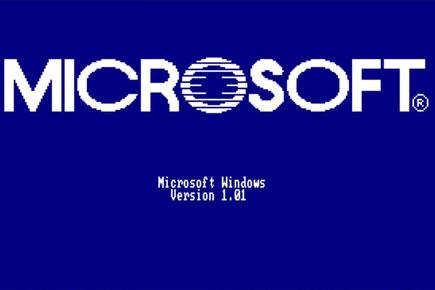
Microsoft Windows 1.0
Microsoft released its first version of the Windows operating system on this day, November 20, thirty years ago. On this occasion we present 30 interesting trivia facts about the OS...
ADVERTISEMENT
>> The inspiration for Windows 1.0 came when Microsoft founder Bill Gates saw a demonstration at COMDEX 1982 of VisiCorp's Visi On, a graphical user interface software suite for IBM PC compatibles.
>> Microsoft Windows runs as a graphical, 16-bit multi-tasking shell on top of an existing MS-DOS installation, providing an environment which can run graphical programs designed for Windows, as well as existing MS-DOS software.
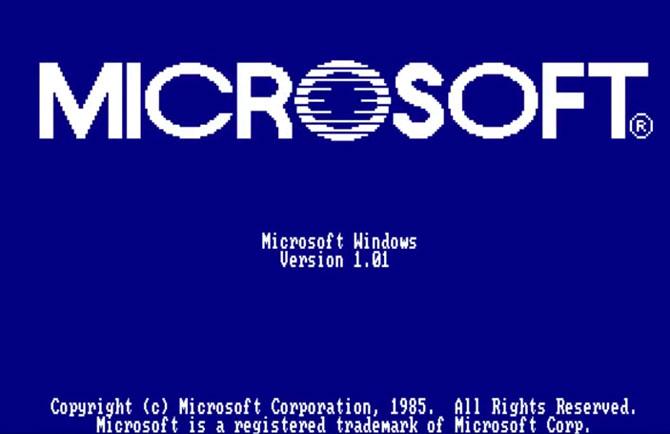
The Microsoft Windows 1.01 bootscreen. Pic/YouTube
>> Microsoft described the Windows 1.0 OS as a device driver for MS-DOS 2.0. It required two floppy disk drives and 192 KB of RAM.
>> Microsoft Windows 1.0 differs from both Visi On and Apple Computer's Lisa by supporting cooperative multitasking in tiled windows when using well-behaved applications that only used DOS system calls, and permitting non-well-behaved applications to run in a full screen thus offering many applications.
>> Unlike Visi On, Windows developers did not need to use Unix to develop IBM PC applications.
>> Microsoft planned to encourage other companies, including competitors, to develop for Windows 1.0 by not requiring a Microsoft user interface in their applications.
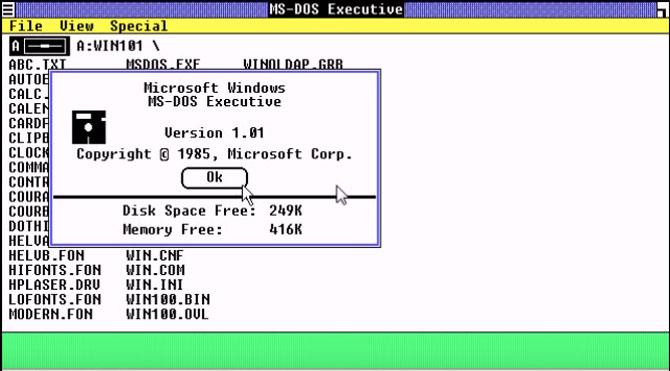
A screen grab from a demo of the Windows 1.0 OS, which shows the version information. Pic/YouTube
>> Microsoft Windows 1.01 had the following basic system requirements
- CGA/HGC/EGA (listed as "Monochrome or color monitor")
- MS-DOS 2.0
- 256 KB of memory or greater
- Two double-sided disk drives or a hard drive
- Support for Tandy and AT&T graphics modes was added with version 1.03
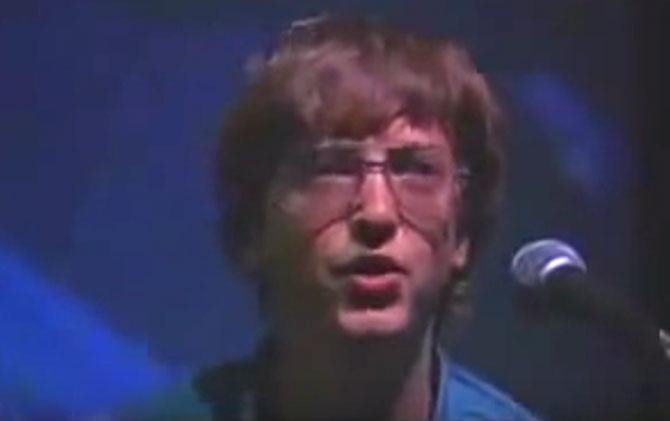
Bill Gates in a still from an interview in 1983. Pic/YouTube
>> Often regarded as a "front-end to the MS-DOS operating system", Windows 1.0 programs can call MS-DOS functions, and GUI programs are run from .exe files. However they had their own "new executable" (NE) file format, which only Windows could process and which, for example, allowed demand-loading of code and data.
>> Windows 1.0 applications were supposed to handle memory only through Windows' own memory management system, which implemented a software-based virtual memory scheme allowing for applications larger than available RAM.
>> Windows 1.0 runs a shell program known as the MS-DOS Executive, which is little more than a mouse-able output of the DIR command that does not support icons and is not Y2K-compliant.
>> Windows 1.0 executables did not contain the code that prints the "This program requires Microsoft Windows" message as newer Windows programs do despite having a similar .exe extension and initial file header.
>> Programs like Calculator, Calendar, Clipboard Viewer, Clock, Notepad, Paint, Reversi, Cardfile, Terminal and Write were supplied with the Microsoft Windows 1.0
>> Windows 1.0 included original device drivers for video cards, a mouse, keyboards, printers and serial communications, and applications were supposed to only invoke
APIs built upon these drivers.
>> Windows 1.0 was designed to be extended into a full-fledged operating system, rather than being just a graphics environment used by applications.
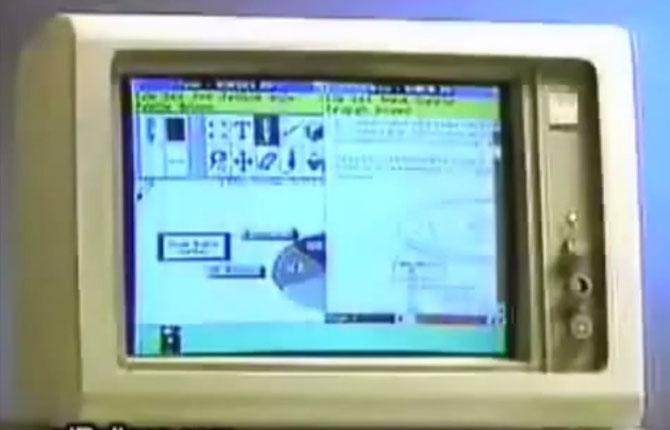
A still from a 1985 commercial explaining the features of the Microsoft Windows 1.0. Pic/YouTube
>> Firms that dealt with the manufacture of MS-DOS computers like Compaq, Zenith, DEC, software companies Ashton-Tate, Lotus promised support to the Microsoft Windows 1.0. OS.
>> The Microsoft Windows 1.0 OS was received poorly by critics despite its early presentations and support from a number of hardware and software makers. The criticism was mainly directed towards too much emphasis on mouse input at a time when mouse use was not yet widespread; not providing enough resources for new users; and for suffering from performance issues, especially on systems with lower hardware specifications.
>> Windows Version 1.02 , released in May 1986, was an international release, followed by Version 1.03, released in August 1986, which included enhancements like drivers for European keyboards, additional screen and printer drivers. Version 1.04, released in April 1987, added support for the new IBM PS/2 computers, although no support for PS/2 mice or new VGA graphics modes was provided. OS/2 and its graphical OS/2 Presentation Manager were introduced by Microsoft and IBM, which were supposed to ultimately replace both MS-DOS and Windows.
>> Windows 1.0 was officially declared obsolete and unsupported by Microsoft on December 31, 2001.
 Subscribe today by clicking the link and stay updated with the latest news!" Click here!
Subscribe today by clicking the link and stay updated with the latest news!" Click here!







